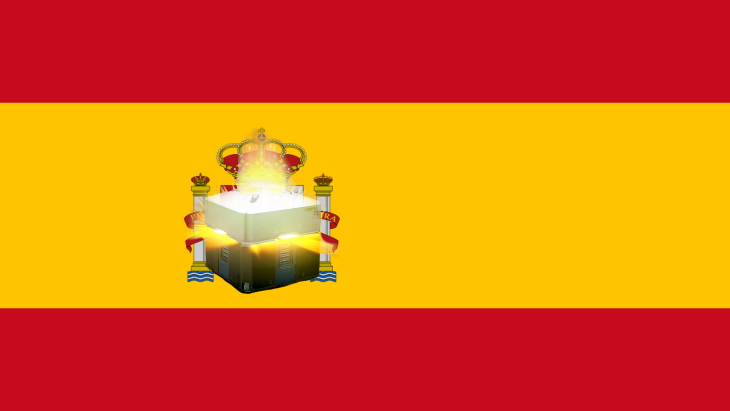
The Spanish Minister of Consumer Affairs has announced new regulations to be implemented against the advertising of games with lootboxes. He has also submitted new legal framework to have lootboxes treated the same as gambling.
In the ongoing controversy surrounding lootboxes, several governmental bodies within nations, and their politicians [1, 2, 3, 4] threatened to take legal action against developers.
EA even removed premium currency from FIFA 18 and FIFA 19 after Belgium authorities deemed lootboxes as being on-par with gambling. In addition several companies pulled their games from service within Belgium.
Now, Alberto Garzón- the Spanish Minister of Consumer Affairs (or literally translated “Minister of Consumption”)- has taken the “first steps” towards regulating lootboxes. In a series of tweets, Garzón wrote:
“Today we have presented the first measures of @consumogob [Ministry of Consumption]
about online game advertising. An urgent first step to address the public health problems that gambling and gambling can cause. I explain some measures in this thread. #RegulaciónPubliApuestas [Publi Betting Regulation]The set of these more than one hundred measures on online game advertising means banning 80% of current ads and a very severe restriction for the rest. A drastic measure that nevertheless seems necessary and justified.
With the measures we seek to protect minors, the elderly at an early age, the most vulnerable groups and in general any person who wants to play. We strictly regulate both the dissemination of advertising – schedules – and the type of messages allowed.”
Translation: Twitter
These regulations treat games with lootboxes as gambling games- at least in terms of advertising.
This means they can only be advertised on TV between 01:00 a.m. and 05:00 a.m, only hiring “tipsters” if they publish their betting results, a ban on their trademarks being used on any product intended for children (such as sports team shirts), no use of the aforementioned trademarks advertised in sporting or “entertainment” facilities, celebrities cannot be used in adverts, and more.
Providing all these criteria are met, then advertising of gambling products or services are permitted during sporting events from 8:00 p.m. onwards. The Ministry of Consumer Affairs tweeted that the new laws would ban 80% of the applicable advertisements, while placing heavy restrictions on those that remained.
Games that are free to play can only be distributed via an official website that implements age-gating. The game should also have “the same algorithm as the paid game, in order not to convey the erroneous feeling that it is easier to win than it really is.”
While Garzón states more measures will come, he also stated an outright ban would not be implemented.
“We are committed to a regulatory and non-prohibitive paradigm for its effectiveness, demonstrated by international experience and economic rationality. The case of Italy is significant: it banned all advertising and has had to back down because it caused greater evils.
A prohibition paradigm stimulates illegal gambling, which in the case of online gambling is very accessible. It is not a case of physical contraband. It is enough to have a web page on a dotcom server, accessible via VPN and thereby get rid of any control (tax and content).
Players will continue to play as long as there are no other effective measures (information, prevention, etc.), whether on a legal or illegal platform. The data reveal that for health it is better for the game to be practiced in a controlled and regulated manner, so that the State protects its health.
The total ban on advertising would generate incentives for illegal gambling to grow and for advertising to target other non-easily adjustable media, more accessible to vulnerable groups. A political “medal”, but a public policy disaster.
We protect users who want to play online for leisure or necessity, and it seems inappropriate and imprudent to push them into an illegal and unregulated game system where they are unprotected against the practices of gaming companies.”
In addition, Business Insider reports that Garzón has presented the Congress Health and Consumer Commission with “a new regulatory framework that acts on gambling, especially in the field of video games.” Garzón advocates that lootboxes should be treated “like any other game of chance” under the law.
What do you think? Sound off in the comments below!